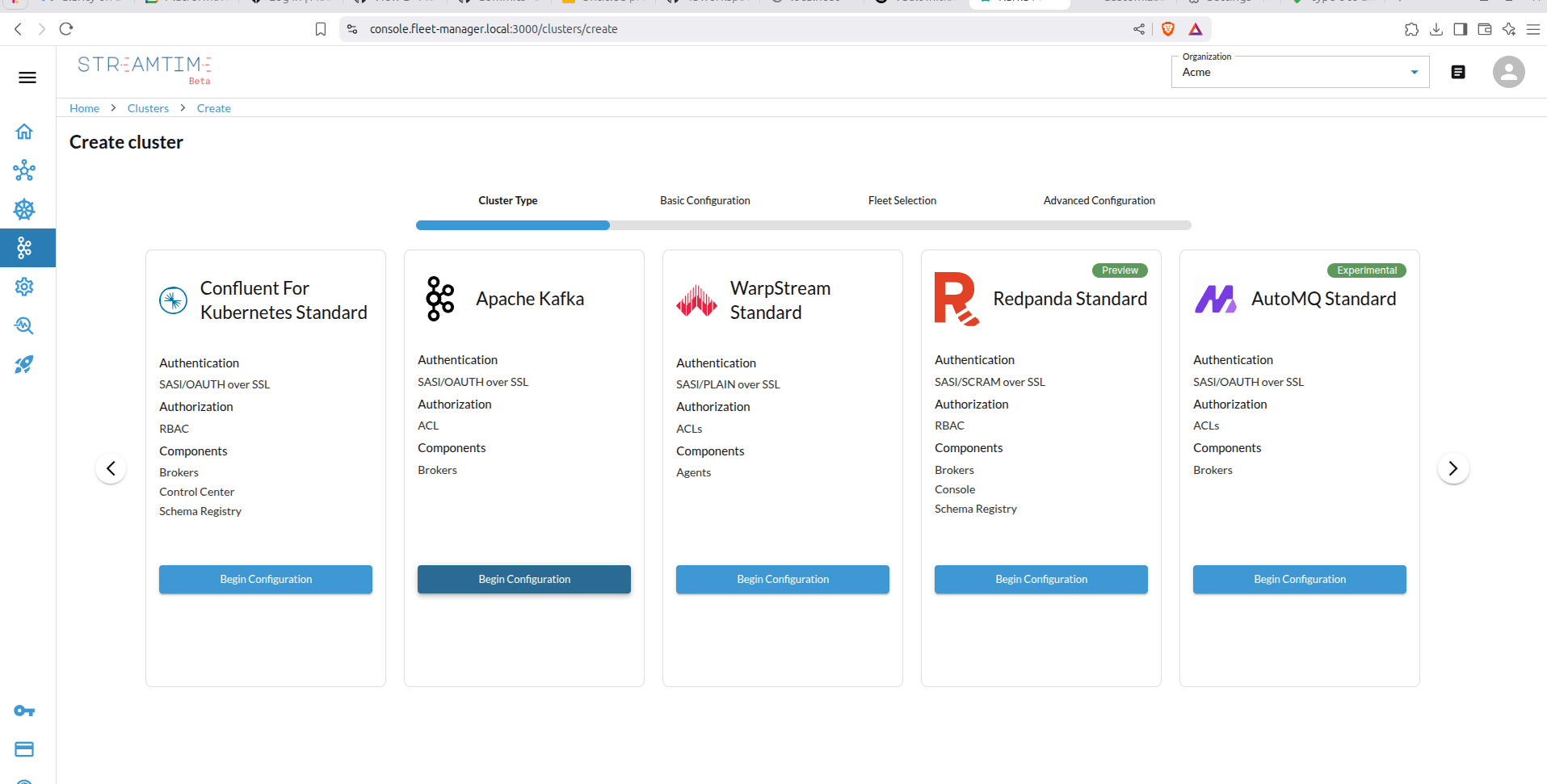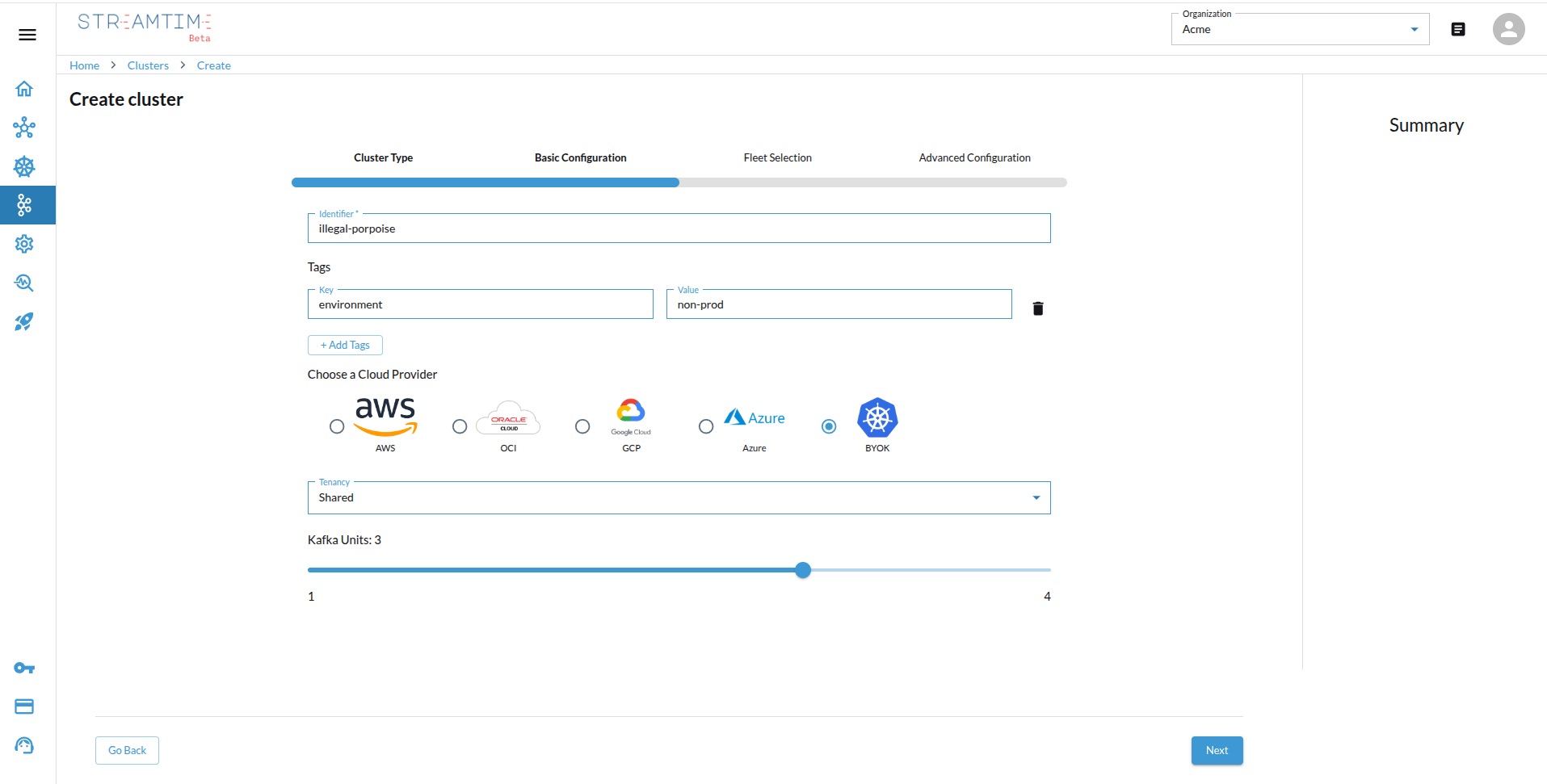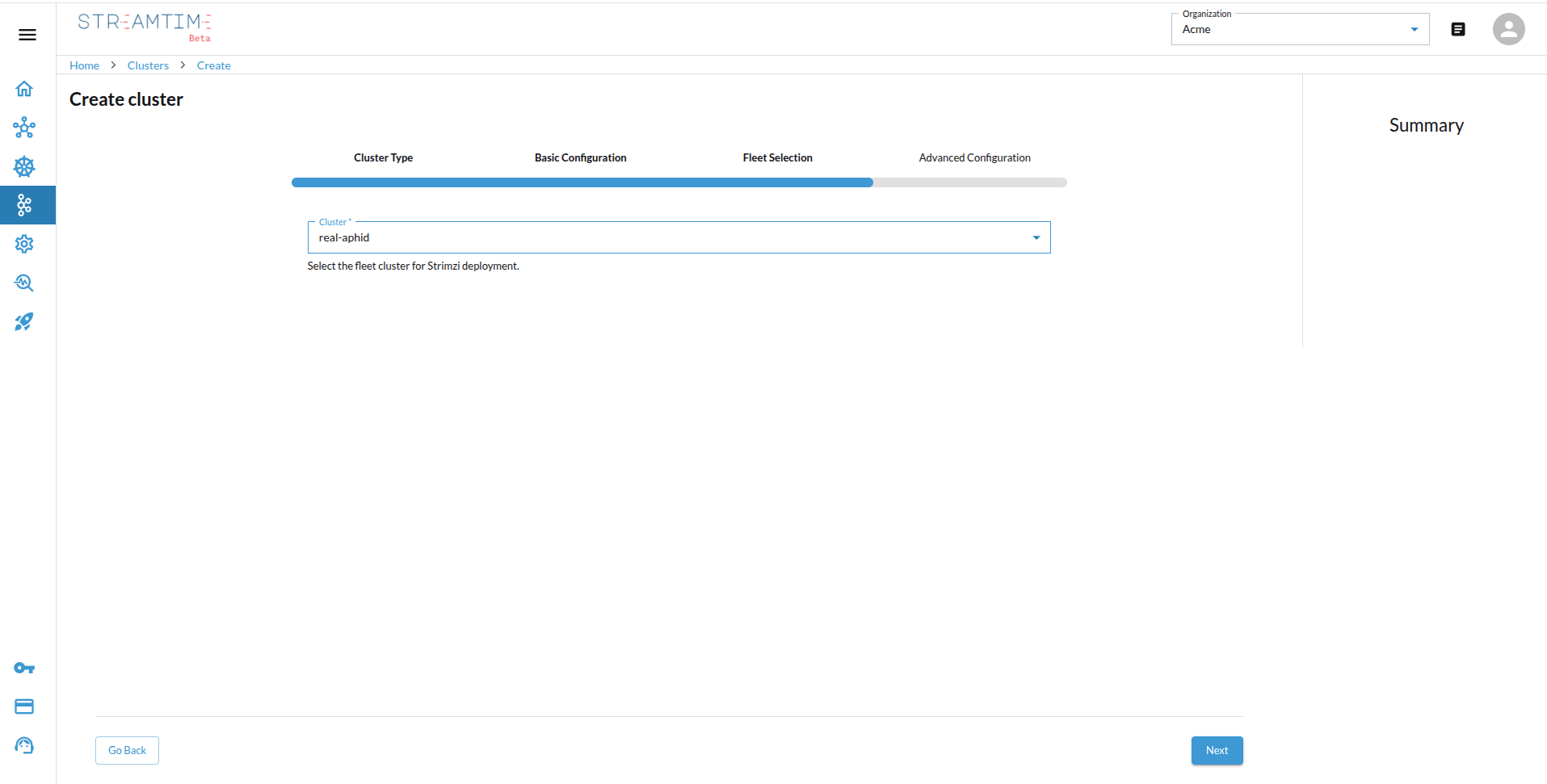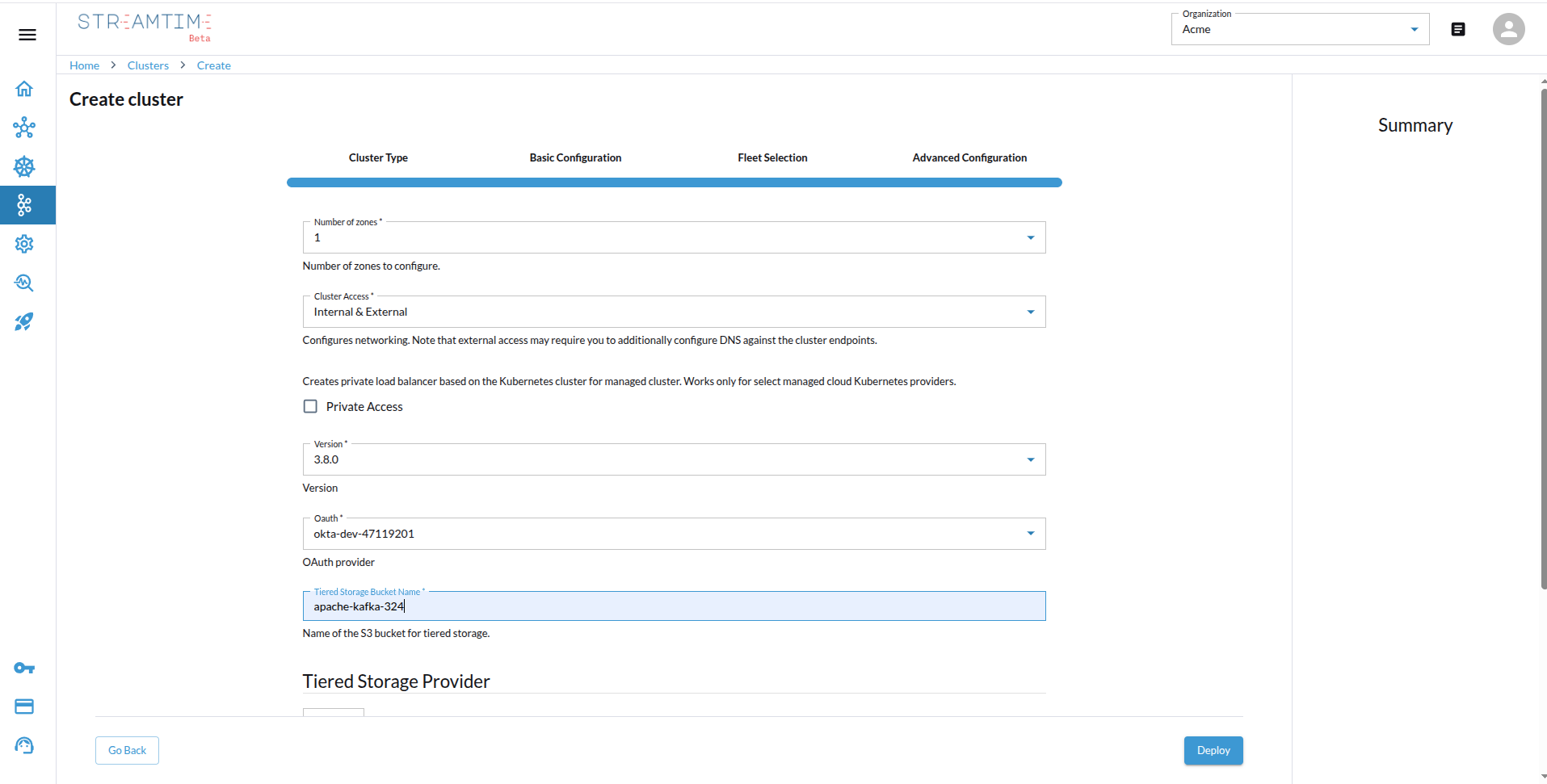Video Tutorial: Creating an Apache Kafka Cluster on BYOK
Apache Kafka
Apache Kafka is a popular open-source distributed event streaming platform. Streamtime enables you to deploy and manage Apache Kafka clusters on your Kubernetes fleets with full automation and observability.
When to Use Apache Kafka
- Open Source Requirements: When you need a fully open-source Kafka distribution without vendor lock-in.
- Custom Integrations: If you require advanced customization or integration with existing open-source tools.
- Benchmarking & Testing: For proof-of-concept, benchmarking, or development environments.
- Cost Control: When you want to avoid commercial licensing costs and manage your own scaling and upgrades.
Steps to Create an Apache Kafka Cluster
- Select Cluster Platform
- In the Streamtime UI, start by creating a new Kafka cluster.
- Choose Apache Kafka as the cluster platform.

- Configure Cluster Basics
- Set the cluster name.
- Select the tenancy mode (shared, isolated, or dedicated).
- Specify the number of Kafka units required (1 Kafka unit = 20 MBps throughput).

- Select Fleet Placement
- Choose the Kubernetes fleet (BYOK or managed cloud) where the cluster will be deployed.
- Ensure the selected fleet matches your tenancy and sizing requirements.

- Advanced Configuration
- Configure authentication (identity provider), storage options, and Apache Kafka version.
- Enable or disable auto-upgrade based on your operational preferences.

API Reference
Create an Apache Kafka Cluster
curl -X POST https://<streamtime-api-endpoint>/organizations/<your-org-id>/clusters/ \
-H "Authorization: Bearer YOUR_API_TOKEN" \
-H "Content-Type: application/json" \
-d '{
"identifier": "dutch-mammal",
"cluster_type": "strimzi",
"kafka_units": 3,
"provisioner_name": "",
"tenancy_mode": "Shared",
"advanced_config": {
"number_of_zones": "1",
"cluster_access": "Internal & External",
"private_access": false,
"version": "3.8.0",
"oauth": "okta-dev-47119201",
"tiered_storage_bucket_name": "apache-kafka-32421",
"tiered_storage_provider": {
"aws_account": "platformatory",
"aws_region": "us-east-1"
},
"tiered_storage_create_bucket": true
},
"tags": [
{
"key": "environment",
"value": "non-prod"
}
],
"organization": "<your-org-id>",
"cloud_provider": "aws",
"region": "us-east-1",
"infrastructure": "sympathetic-emu"
}'
Response:
{
"id": "1a0b72d5-96b9-4123-9cec-71446b6bf45c",
"organization": "<your-org-id>",
"infrastructure": "sympathetic-emu",
"identifier": "dutch-mammal",
"provisioner_name": "",
"destroyer_name": null,
"version_updater_name": null,
"cluster_type": "strimzi",
"tenancy_mode": "Shared",
"kafka_units": 3,
"cloud_provider": "aws",
"region": "us-east-1",
"tags": [
{
"key": "environment",
"value": "non-prod"
}
],
"advanced_config": {
"number_of_zones": "1",
"cluster_access": "Internal & External",
"private_access": false,
"version": "3.8.0",
"oauth": "okta-dev-47119201",
"tiered_storage_bucket_name": "apache-kafka-32421",
"tiered_storage_provider": {
"aws_account": "platformatory",
"aws_region": "us-east-1"
},
"tiered_storage_create_bucket": true
},
"console_url": null,
"client_properties": null,
"new_version": null,
"s3_manifests_file_path": null,
"status": "Pending",
"created_at": "2025-07-17T09:49:48.972570Z",
"updated_at": "2025-07-17T09:49:48.972586Z"
}